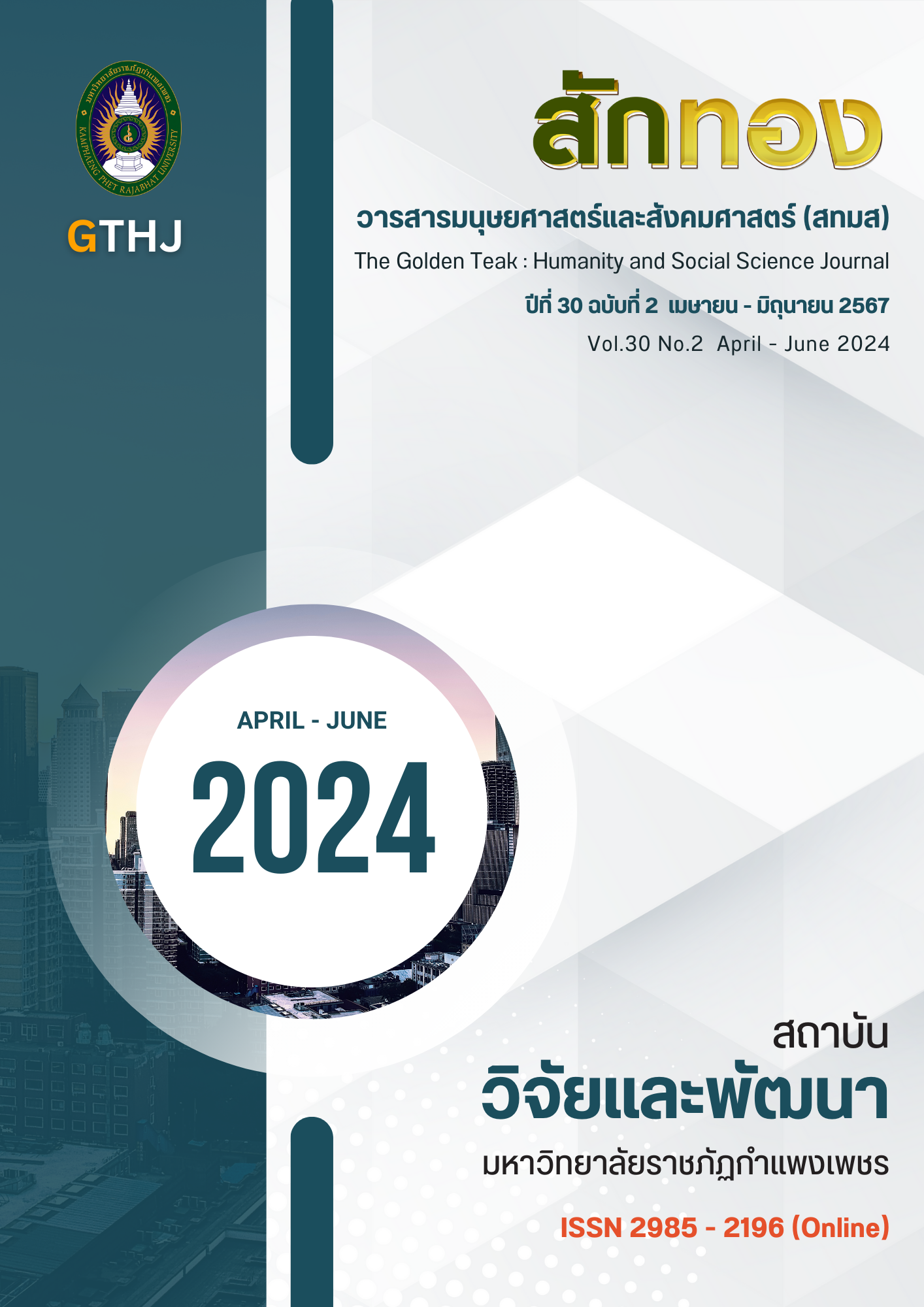Dual Education Management Model for Learning Community in Career Skills in the Service Area of the Institute of Vocational Education : Northern Region 1
Main Article Content
Abstract
This research aims to create and evaluate a model and manual for using the dual education management model to create a learning society in vocational skills in the service area of the Institute of Vocational Education: Northern Region 1. It is both quantitative and quantitative research. The sample group consisted of administrators, teachers, educational personnel, students, parents, and professional representatives in the community. From educational institutions participating in the dual education project in the service area of the Institute of Vocational Education: Northern Region 1, 43 locations, totaling 731 people, through purposive selection. Research tools are questionnaires, interviews, meeting minutes, and assessments. Frequency, percentage, mean, and standard deviation were used to examine the data. The research results found that the dual education management model to create a learning society of vocational skills in the service area of the Institute of Vocational Education: Northern Region 1 has five components: 1) the model's principles; 2) its objectives; 3) management systems and mechanisms; 4) measurement and evaluation; and 5) success conditions. There are seven components in the format user manual: 1) elucidation; 2) introduction; 3) format; 4) usage procedure; 5) format assessment; 6) reference materials; and 7) appendix. High degrees of accuracy and appropriateness are found in the format evaluation results and the manual for utilizing the dual education management model to establish a society of learning about vocational skills
Article Details

This work is licensed under a Creative Commons Attribution-NonCommercial-NoDerivatives 4.0 International License.
บทความที่ได้รับการตีพิมพ์เป็นลิขสิทธิ์ของวารสาร สักทอง : วารสารมนุษยศาสตร์และสังคมศาสตร์ สถาบันวิจัยและพัฒนา มหาวิทยาลับราชภัฏกำแพงเพชร
ข้อคิดเห็นใดๆ ที่ปรากฎในวารสารเป็นวรรณกรรมของผู้เขียนโดยเฉพาะ ซึ่งมหาวิทยาลัยราชภัฏกำแพงเพชรและบรรณาธิการไม่จำเป็นต้องเห็นด้วย
References
Boonruksa, S. (2019). Evaluation of Inclusive Education Between Vocational Education and High School under Secondary Education Service Area Office 23 in Sakon Nakhon Province. Master's thesis, Mahasarakham University. [In Thai]
Chaowakeeratiphong, T. (2015). The Public Mind Development Model for School Youth in Kamphaeng Phet and Tak. The Golden Teak : Humanity and Social Science Journal, 21(3), 54-68. [In Thai]
Charoensri, K. & Boonkoum, W. (2020). The Learning Society Model in Schools of Nakhon Pathom City Municipality. Journal of Education Silpakorn University, 12(2), 90-106. [In Thai]
Ministry of Education. (2022). Announcement of the Ministry of Education on Policies and Emphasis of the Ministry of Education Fiscal Year 2023. [Online]. Available : https://www.moe.go.th/360policy-and-focus-moe-2023/ [2022, September 20]. [In Thai]
Maetuen Wittayakhom School. (2022). History of Mae Tuen Wittayakhom School. [Online]. Available : https://maetuen.ac.th/?page_id=2 [2022, January 30]. [In Thai]
Phoket, T. (2021). The Management Model for Development to Quality Schools of Ban Donyang School under The Chiangrai Primary Educational Service Area Office 4. Journal of Social Science and Buddhistic Anthropology, 6(1), 34-51. [In Thai]
Preewan, P., Baongern, C., & Wongsirasawat, C. (2016). Causal Relationship Model of Factors Affecting Dual Vocational Training Developing. Journal of Graduate Studies Valaya Alongkorn Rajabhat University, 10(2), 201-214.
Pundan, P. (2018). Handbook of Educational Management 3R Model. [Online]. Available : https://issuu.com/spb3/docs/returns_policy_model [2020, April 30]. [In Thai]
Srisaart, B. (2017). Preliminary research. (10 th ed.). Bangkok : Suwiriyasan. [In Thai]
Sutheero, P. (2020). Development of Thai Teachers to 21st Century. Journal of Graduate Saket Review, 5(2), 20-21. [In Thai]


